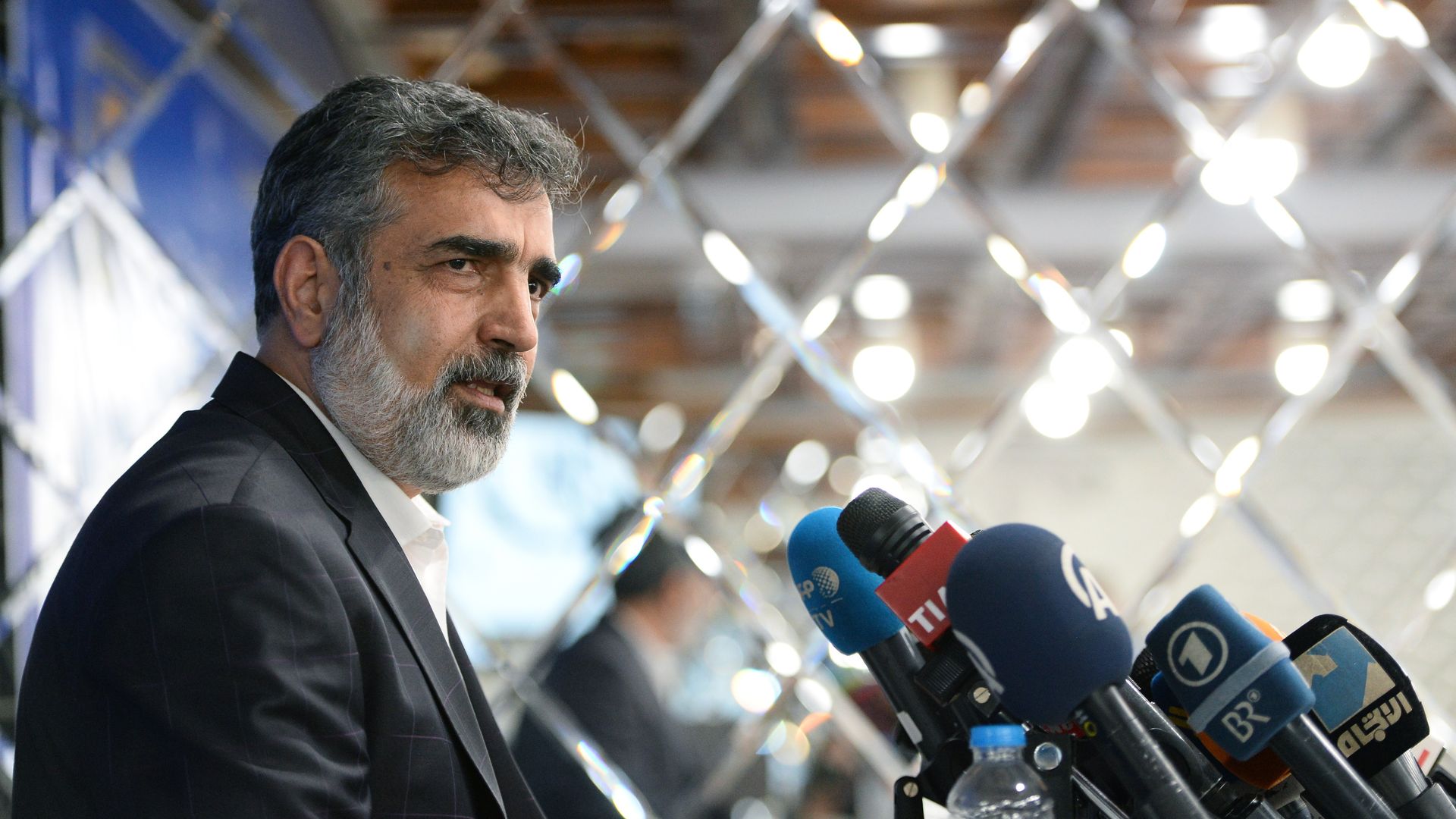Jun 17, 2019 - World
Expert VoicesWithout new talks, U.S.–Iran tensions continue to escalate
Add Axios as your preferred source to
see more of our stories on Google.

Behrouz Kamalvandi, spokesperson for the Atomic Energy Organization of Iran, at a press conference in July 2018. Photo: Fatemeh Bahrami/Anadolu Agency/Getty Images
